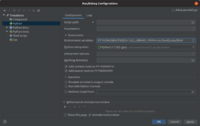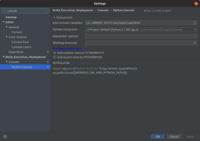CUDA: Difference between revisions
| Line 8: | Line 8: | ||
For example: | For example: | ||
<syntaxhighlight lang="bash"> | <syntaxhighlight lang="bash"> | ||
# Install the runtime | |||
conda install -c "nvidia/label/cuda-11.8.0" cuda-toolkit | conda install -c "nvidia/label/cuda-11.8.0" cuda-toolkit | ||
# | # Install development tools | ||
conda install -c "nvidia/label/cuda-11.8.0" cuda-libraries-dev | conda install -c "nvidia/label/cuda-11.8.0" cuda-libraries-dev | ||
</syntaxhighlight> | </syntaxhighlight> | ||
Revision as of 16:04, 15 June 2023
Installation
I suggest using conda to install cuda for version control your project.
Conda
See nvidia/cuda-toolkit and nvidia/cuda-libraries-dev
For example:
# Install the runtime
conda install -c "nvidia/label/cuda-11.8.0" cuda-toolkit
# Install development tools
conda install -c "nvidia/label/cuda-11.8.0" cuda-libraries-dev
Ubuntu
Details
GCC Versions
nvcc sometimes only supports older gcc/g++ versions.
To make it use those by default, create the following symlinks:
sudo ln -s /usr/bin/gcc-6 /usr/local/cuda/bin/gccsudo ln -s /usr/bin/g++-6 /usr/local/cuda/bin/g++
Alternatively, you can use -ccbin and point to your gcc:
-ccbin /usr/local/cuda/bin/gcc


